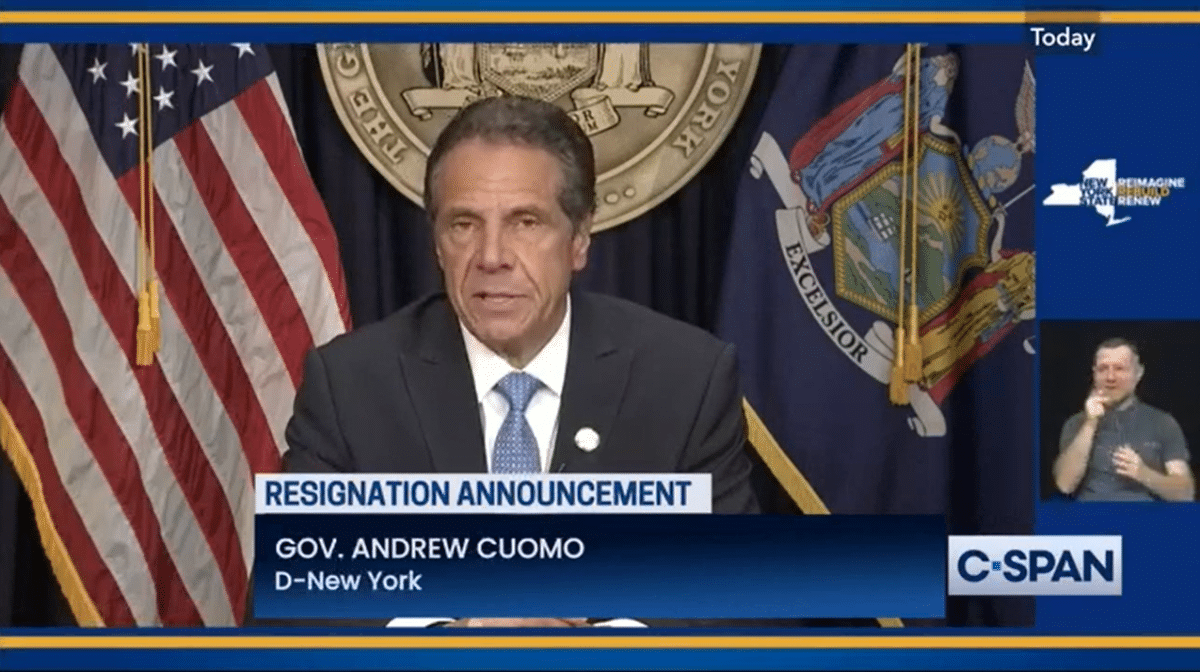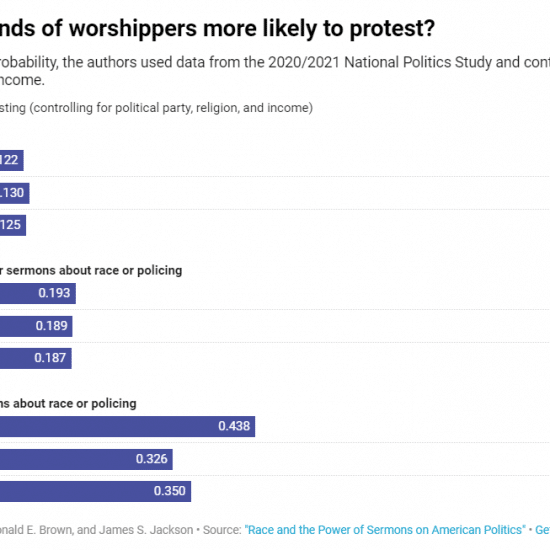
New York Gov. Andrew Cuomo, a Democrat, announced his resignation on Tuesday (Aug. 10).
Finally.
Allegations that he sexually harassed women continued to grow over the past several months. He denied claims back in December and then new ones emerged in February. More women came forward in March, which led state lawmakers to start an investigation that could lead to impeachment.
Last week, the proverbial dam burst for Cuomo. New York Attorney General Letitia James, also a Democrat, released findings on Aug. 3 from a five-month investigation. Her report provided evidence that Cuomo sexually harassed at least 11 women during his time as governor. His misconduct included unwanted sexual comments, kissing, and groping — and his office engaged in illegal retaliation against a woman who went public with her allegations.
The calls for Cuomo to step aside came quickly from politicians on both sides of the aisle, in New York and across the country. President Joe Biden said, “I think he should resign.” State lawmakers immediately signaled they would impeach him. The powerful Democratic Speaker of the Assembly Carl Heastie declared that Cuomo “can no longer remain in office.”
Cuomo initially stuck to his familiar script. Brash, defiant, and egotistical, he has long modeled the stereotype of a bare-knuckled New York politician. He denied the allegations, insisted he would stay in office, and claimed the whole affair was just part of a “toxic political environment.”
Even in resigning on Tuesday, his problematic rhetoric continued. He tried to minimize and explain away his inappropriate behavior. Although he claimed innocence, he still resigned — apparently recognizing he would be impeached if he didn’t. We doubt the sincerity of his rhetoric, and we’re appalled at Cuomo’s attempt to cast himself as the good guy. Yet, he did offer a useful insight about the wisdom of resigning, even if he remains in denial about his misdeed.
“This situation, by its current trajectory, will generate months of political and legal controversy,” Cuomo said. “It will consume government. It will cost taxpayers millions of dollars. It will brutalize people. The state assembly yesterday outlined weeks of process that will then lead to months of litigation. Time and money that government should spend managing COVID, guarding against the delta variant, reopening upstate, fighting gun violence, and saving New York City. All that time would be wasted.”
“This is one of the most challenging times for government in a generation. Government really needs to function today. Government needs to perform. It is a matter of life and death,” he added. “And wasting energy on distractions is the last thing that state government should be doing. And I cannot be the cause of that.”
We don’t think Cuomo is actually that selfless and sacrificial. Instead, it seems like a calculated move by a politician about to be booted from office. By reframing himself as a hero or even, absurdly, a victim, he offers an alternative narrative that serves his purposes. But his comments about the misuse of government time and money actually raises a good point: What is the true cost of spending time on issues outside the mission of an organization, be it government, a church, or a civic group?
 In this issue of A Public Witness, we move beyond celebrating Cuomo’s resignation to borrow a principle from economics to help Christians consider the cost of our attention being absorbed by scandals that must be addressed or frivolous issues that should be ignored. We suggest a theological foundation for better managing our most precious resource: time.
In this issue of A Public Witness, we move beyond celebrating Cuomo’s resignation to borrow a principle from economics to help Christians consider the cost of our attention being absorbed by scandals that must be addressed or frivolous issues that should be ignored. We suggest a theological foundation for better managing our most precious resource: time.
NOTE: The rest of this piece is only available to paid subscribers of the Word&Way e-newsletter A Public Witness. Subscribe today to read this essay and all previous issues, and receive future ones in your inbox each Thursday morning.






